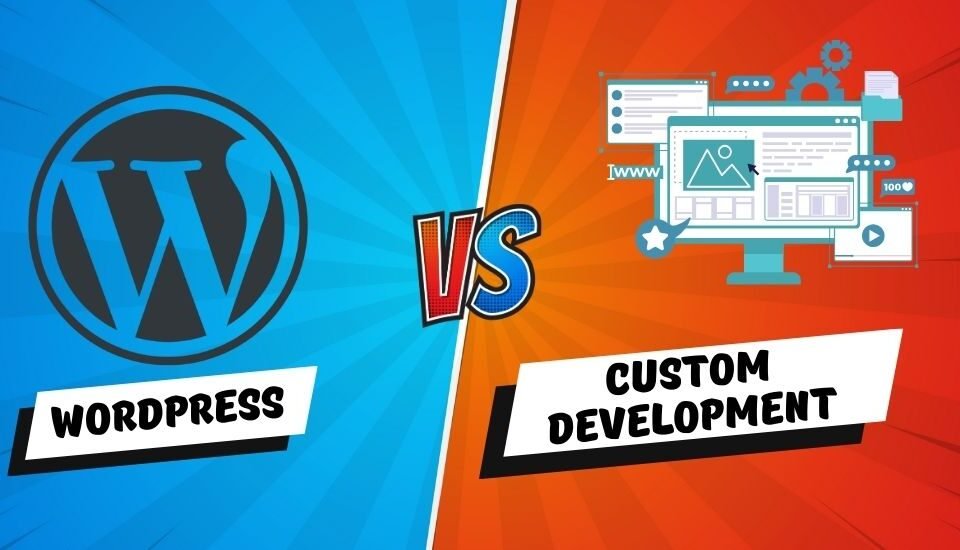- Have any Query ?
- +91-7008562317
- +91-9438140285
- webmaster@sitsindia.co.in
Digital Marketing Guide for Real Estate Agencies in India

Digital Marketing Guide for Real Estate Agencies in India
- Introduction to Digital Marketing in Indian Real Estate
- The evolving role of digital marketing in India’s property market
- Brief overview of the article’s content
- Understanding the Indian Real Estate Audience
- Characteristics of Indian real estate consumers
- How to identify and target the right audience
- Website Development and Optimization
- Key features of a successful real estate website
- Tips for tailoring website content to the Indian market
- Effective Use of Social Media
- Overview of popular social media platforms in India
- Strategies for engaging with the Indian audience on social media
- Search Engine Optimization (SEO) for Indian Real Estate
- Importance of SEO in the Indian context
- Specific SEO strategies for the Indian real estate market
- Content Marketing for Indian Audiences
- Types of content that resonate with Indian customers
- Best practices for content creation and distribution
- Email Marketing Strategies
- Building an effective email marketing campaign
- Tips for crafting emails that appeal to Indian consumers
- Online Advertising in the Indian Market
- Overview of online advertising options
- How to target and convert Indian real estate leads
- Video Marketing for Indian Real Estate
- The impact of video marketing in India
- Creating compelling video content for Indian viewers
- Leveraging Local SEO and Listings
- Importance of local SEO for Indian real estate
- How to optimize for local searches and directories
- Using CRM Tools Effectively
- Selecting and utilizing CRM tools for Indian markets
- Managing client relationships through technology
- Understanding Analytics and ROI
- How to measure and analyze digital marketing efforts
- Calculating ROI for digital strategies in the Indian context
- Mobile Marketing for Indian Consumers
- The significance of mobile marketing in India
- Best practices for reaching mobile users
- Integrating Traditional Marketing Techniques
- Blending digital and traditional marketing methods
- Creating a holistic marketing approach for Indian audiences
- Emerging Trends and Future Outlook
- Upcoming trends in digital marketing for Indian real estate
- Preparing for future changes in the market
- Conclusion
- Summarizing the key points of the article
- Final thoughts on digital marketing for real estate in India
- FAQs
- Addressing common questions about digital marketing in Indian real estate
1. Introduction to Digital Marketing in Indian Real Estate
The landscape of India’s property market is rapidly evolving, with digital marketing playing a pivotal role. In an era where online presence significantly influences consumer decisions, real estate agencies must adapt to these digital trends to stay competitive and relevant. This article delves into the strategies and techniques essential for harnessing the power of digital marketing in the Indian real estate sector.
The Evolving Role of Digital Marketing in India’s Property Market
Digital marketing in Indian real estate has transitioned from being a mere option to a necessity. With a growing number of Indians accessing the internet for property searches and information, digital platforms offer unparalleled opportunities for real estate marketers to reach and engage their target audience effectively.
Brief Overview of the Article’s Content
This guide aims to equip real estate agencies with insights on understanding the Indian real estate audience, developing and optimizing a website, and effectively using social media to enhance their online presence and connect with potential clients.
2. Understanding the Indian Real Estate Audience
A deep understanding of the audience is crucial for any successful digital marketing campaign in the Indian real estate market.
Characteristics of Indian Real Estate Consumers
Indian real estate consumers are diverse, with varying preferences based on region, culture, and economic backgrounds. They are increasingly tech-savvy and rely heavily on online resources for property research. It’s essential to recognize these traits to tailor marketing strategies effectively.
How to Identify and Target the Right Audience
Identifying the right audience involves analyzing market trends, consumer behavior, and demographic data. Utilizing tools like Google Analytics and social media insights can help in understanding the preferences and behaviors of potential clients, enabling more targeted and effective marketing campaigns.
3. Website Development and Optimization
A well-designed website is the cornerstone of digital presence for any real estate agency.
Key Features of a Successful Real Estate Website
A successful real estate website should be user-friendly, mobile-responsive, and optimized for search engines. It should include high-quality property images, detailed descriptions, easy navigation, and contact information. Integrating virtual tours and customer testimonials can further enhance its effectiveness.
Tips for Tailoring Website Content to the Indian Market
Content should be customized to reflect local real estate trends and consumer preferences. Including region-specific information, local market analysis, and guides on property buying in India can make the website more relevant and engaging for the Indian audience.
4. Effective Use of Social Media
Social media is a powerful tool for engaging with potential clients and building brand presence.
Overview of Popular Social Media Platforms in India
In India, platforms like Facebook, Instagram, LinkedIn, and Twitter are widely used. Each platform caters to different segments of the audience and serves various purposes from networking to brand building and direct marketing.
Strategies for Engaging with the Indian Audience on Social Media
Engaging with the Indian audience on social media involves creating and sharing content that is relevant and appealing to the Indian market. This includes property showcases, market insights, and interactive content like polls and live Q&A sessions. Consistency and responsiveness in social media interactions are key to building trust and a strong online community.
5. Search Engine Optimization (SEO) for Indian Real Estate
SEO is crucial for increasing visibility and attracting organic traffic to real estate websites in India.
Importance of SEO in the Indian Context
In India, where the internet is a primary source for property searches, ranking higher in search engine results is essential. Effective SEO ensures that your real estate agency appears prominently in searches, significantly increasing the likelihood of attracting potential clients.
Specific SEO Strategies for the Indian Real Estate Market
To optimize for the Indian market, focus on local SEO by including location-specific keywords and phrases. Ensure your website is listed on local directories and Google My Business. Regularly update your site with fresh, relevant content that includes keywords related to Indian real estate trends.
6. Content Marketing for Indian Audiences
Content marketing can establish your agency as a thought leader in the Indian real estate market.
Types of Content that Resonate with Indian Customers
Indians generally look for informative and relatable content. This can include market analysis, investment tips, guides on home buying processes in different Indian states, and success stories of local real estate investments. Local cultural and festival-related content can also be very engaging.
Best Practices for Content Creation and Distribution
Create content that is informative, engaging, and relevant to the Indian audience. Use a variety of formats like blogs, infographics, and videos. Distribute content through various channels such as your website, social media, and email newsletters to reach a wider audience.
7. Email Marketing Strategies
Email marketing is an effective way to directly reach and engage with potential clients.
Building an Effective Email Marketing Campaign
Segment your email list based on customer preferences, location, and behavior to create targeted campaigns. Personalize emails to increase engagement. Regular newsletters featuring new listings, market trends, and company news can keep your audience informed and engaged.
Tips for Crafting Emails that Appeal to Indian Consumers
Focus on creating emails that are culturally relevant and resonant. Use a conversational tone and include visuals like images and videos. Highlight properties that meet the unique needs and preferences of different segments of the Indian market.
8. Online Advertising in the Indian Market
Online advertising can significantly boost your agency’s visibility and lead generation.
Overview of Online Advertising Options
In India, online advertising options include Google Ads, social media advertising on platforms like Facebook and Instagram, and listings on real estate portals. These platforms offer targeted advertising based on location, demographics, and user behavior.
How to Target and Convert Indian Real Estate Leads
To effectively target Indian leads, use location-based targeting and demographic segmentation. Utilize retargeting strategies to re-engage visitors who have shown interest in your listings. Create compelling ad copy and visuals that reflect the aspirations and needs of the Indian real estate buyer.
9. Video Marketing for Indian Real Estate
Video marketing has become a game-changer in the Indian real estate industry due to its dynamic and engaging nature.
The Impact of Video Marketing in India
In India, where a large portion of the population consumes digital content, video marketing can significantly enhance engagement and reach. Videos offer an immersive experience, allowing potential buyers to virtually explore properties. This is particularly effective given the current trends and preferences of Indian consumers.
Creating Compelling Video Content for Indian Viewers
To capture the attention of Indian viewers, focus on creating videos that showcase properties in a detailed and appealing manner. Include virtual tours, neighborhood highlights, and testimonials from satisfied customers. Cultural relevance and storytelling can also add a unique appeal to your video content.
10. Leveraging Local SEO and Listings
Local SEO is critical for real estate agencies to connect with local buyers and sellers effectively.
Importance of Local SEO for Indian Real Estate
In a diverse market like India, local SEO helps in targeting potential clients within specific geographical locations. It’s crucial for driving local traffic to your website and increasing the visibility of your listings in local search results.
How to Optimize for Local Searches and Directories
Optimize your website with local keywords, and ensure your agency is listed in local online directories and on Google My Business. Encourage satisfied clients to leave reviews on these platforms, as positive reviews can boost local SEO rankings.
11. Using CRM Tools Effectively
Effective use of CRM tools is essential for managing client relationships and streamlining operations.
Selecting and Utilizing CRM Tools for Indian Markets
Choose a CRM tool that caters to the specific needs of the Indian real estate market. It should handle lead management, customer segmentation, and sales tracking efficiently. Some CRM tools also offer features like automated responses and analytics, which can be particularly useful.
Managing Client Relationships Through Technology
Use CRM tools to maintain detailed records of client interactions, preferences, and transactions. This data can help personalize communication and improve customer service. Automated follow-ups and reminders can also enhance client engagement and satisfaction.
12. Understanding Analytics and ROI
Analyzing the effectiveness of digital marketing strategies is crucial for any real estate business in India.
How to Measure and Analyze Digital Marketing Efforts
Use analytics tools to track website traffic, engagement rates, lead generation, and conversion rates. Monitoring these metrics will provide insights into the performance of your digital marketing strategies and help in identifying areas for improvement.
Calculating ROI for Digital Strategies in the Indian Context
To calculate the ROI of your digital marketing efforts, measure the cost of your marketing activities against the revenue generated from them. This involves tracking leads generated from digital channels and the conversion of these leads into sales. Understanding the ROI helps in making informed decisions about future marketing investments.
13. Mobile Marketing for Indian Consumers
In today’s era, mobile marketing holds a pivotal position in the Indian market, especially in the real estate sector.
The Significance of Mobile Marketing in India
India’s massive mobile user base makes mobile marketing an essential strategy for real estate businesses. With most consumers using smartphones for internet access, mobile platforms offer a direct channel to reach and engage potential clients efficiently.
Best Practices for Reaching Mobile Users
- Optimize for Mobile: Ensure your website and all digital content are mobile-friendly with responsive designs.
- SMS and WhatsApp Marketing: Utilize SMS and WhatsApp for direct communication, offering updates and personalized offers.
- Mobile Apps: Consider developing a user-friendly mobile app for property listings and customer service.
- Localized Content: Create localized content for different regions to cater to the diverse Indian audience.
- Leverage Social Media: Use social media platforms effectively, as they are predominantly accessed via mobile devices.
14. Integrating Traditional Marketing Techniques
Combining digital and traditional marketing methods can yield a more comprehensive approach for Indian audiences.
Blending Digital and Traditional Marketing Methods
While the focus on digital marketing is essential, traditional methods like print media, billboards, and networking in local events still play a vital role in reaching certain segments of the market.
Creating a Holistic Marketing Approach for Indian Audiences
- Cross-Promotion: Utilize digital platforms to promote traditional events and vice versa.
- Consistent Branding: Ensure that your branding is consistent across both digital and traditional platforms.
- Customer Feedback: Use traditional customer interactions as a source of content and testimonials for digital platforms.
15. Emerging Trends and Future Outlook
Staying ahead of the curve with upcoming trends is crucial for real estate agencies to remain competitive in the Indian market.
Upcoming Trends in Digital Marketing for Indian Real Estate
- Virtual Reality (VR) and Augmented Reality (AR): These technologies are becoming more prevalent, offering virtual tours of properties.
- AI and Machine Learning: For personalized customer experiences and predictive analysis of market trends.
- Influencer Marketing: Collaborating with influencers can significantly increase brand visibility and trust.
- Sustainability and Green Living: Marketing properties with a focus on sustainability can appeal to the environmentally conscious consumer.
Preparing for Future Changes in the Market
- Invest in Technology: Keep abreast of new technologies and integrate them into your marketing strategies.
- Continuous Learning: Stay updated with the latest digital marketing trends and customer preferences.
- Adaptability: Be prepared to adapt your strategies to align with the changing market dynamics and consumer behavior.
Conclusion
In conclusion, this comprehensive guide to digital marketing for Indian real estate agencies offers a roadmap for navigating the multifaceted and dynamic landscape of online marketing in India. From understanding the unique aspects of the Indian real estate audience to harnessing the power of various digital tools such as SEO, social media, and mobile marketing, each element plays a crucial role in building a successful online presence.
The real estate market in India, characterized by its diversity and rapid technological adoption, requires a tailored approach. Agencies must not only develop engaging and optimized websites but also create content that resonates with the Indian audience. Effective use of email marketing, video content, and online advertising strategies are essential for reaching potential clients.
Furthermore, the integration of traditional marketing techniques with digital methods provides a holistic approach, ensuring a wider reach and deeper connection with various segments of the market. As the digital landscape continues to evolve, staying abreast of emerging trends and adapting to new technologies will be key to maintaining a competitive edge.
Real estate agencies in India that embrace these strategies, continuously adapt to market changes, and effectively measure their efforts’ ROI will be well-positioned to thrive in the digital era of real estate marketing.
FAQs on Digital Marketing in Indian Real Estate
Q1: How important is having a website for real estate agencies in India?
A1: A website is crucial as it serves as the digital storefront for the agency, offering a first impression to potential clients. It should be user-friendly, informative, and optimized for search engines.
Q2: Can social media marketing replace traditional real estate marketing methods in India?
A2: While social media marketing is increasingly important, it should complement rather than replace traditional methods. A blend of both can effectively reach a broader audience.
Q3: What role does SEO play in real estate digital marketing in India?
A3: SEO is vital in increasing online visibility, driving organic traffic to the website, and helping agencies rank higher in search engine results, particularly in local searches.
Q4: How effective are email marketing campaigns for Indian real estate?
A4: Email marketing remains an effective tool for personalized communication, nurturing leads, and keeping clients informed about listings and market trends.
Q5: What emerging trends should real estate marketers in India be aware of?
A5: Key trends include the use of AI and VR in property showcases, increased focus on mobile marketing, and the growing importance of video content and influencer partnerships.
By understanding and implementing these strategies and staying updated with the latest trends, real estate agencies in India can significantly enhance their digital marketing effectiveness, ensuring growth and success in the ever-evolving digital landscape.




1 Comment
Thanks! Valuable information.